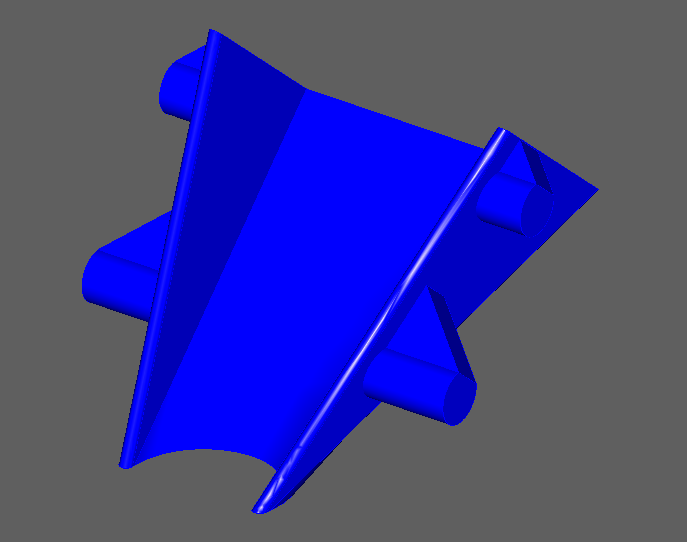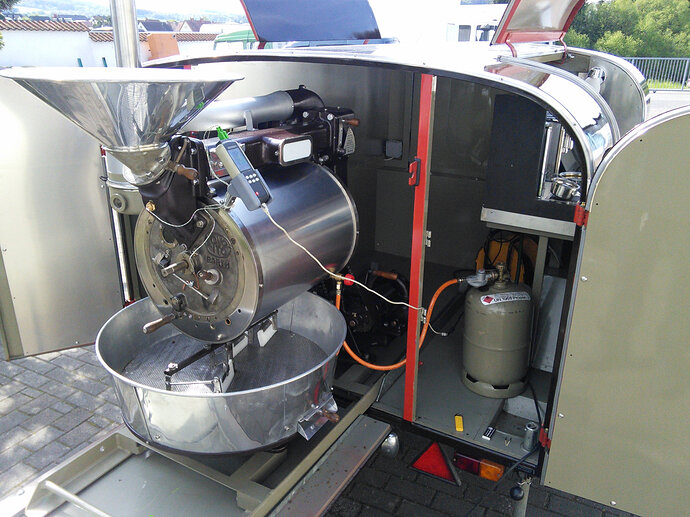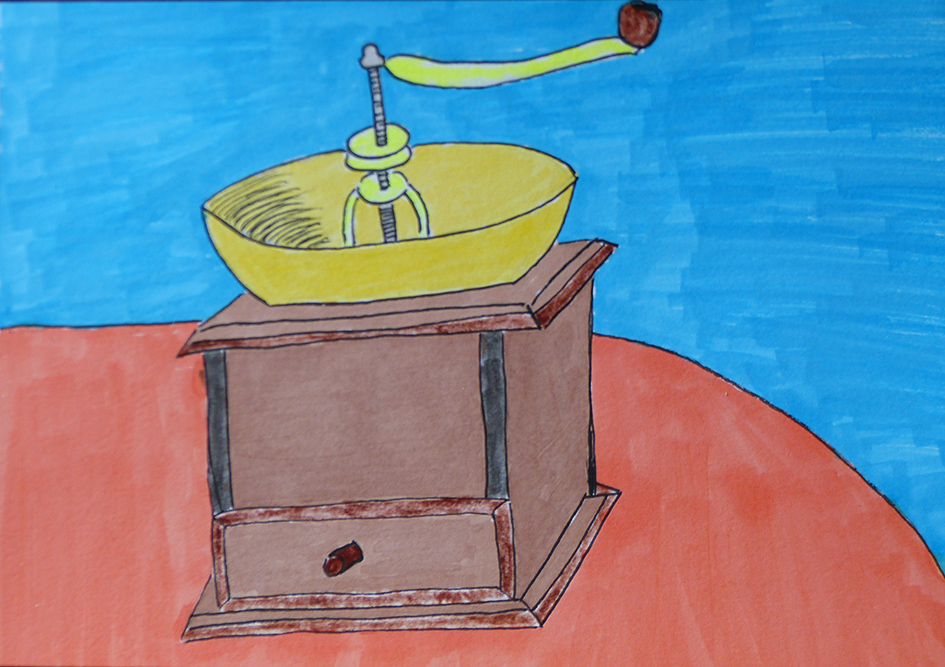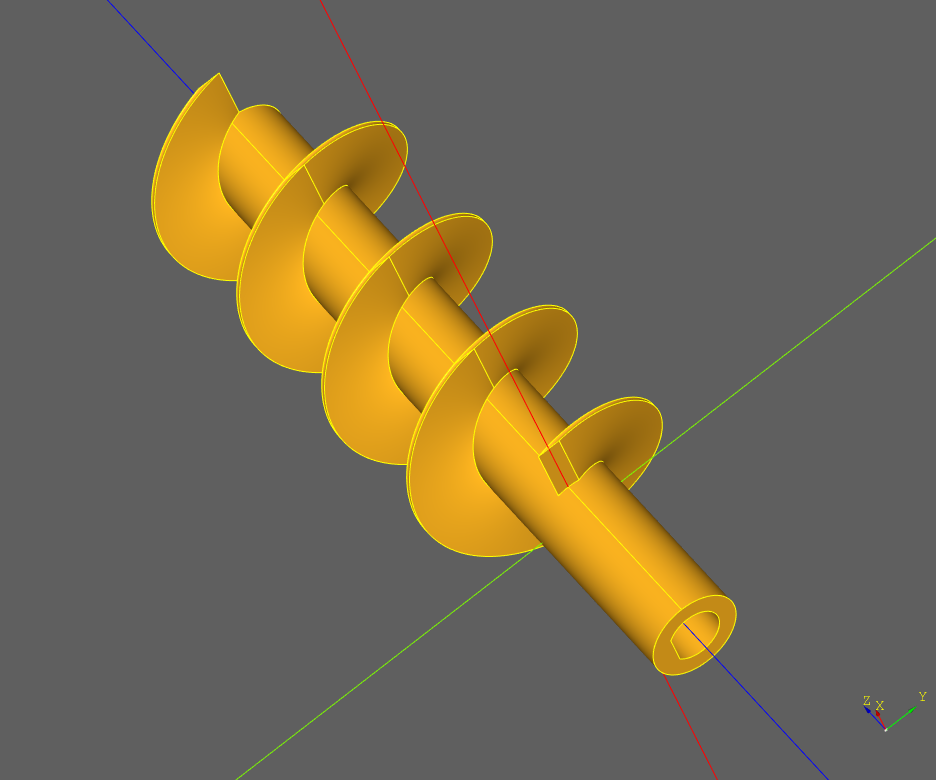Actually, after a few weeks with OpenSCAD I found that it is too hard to work with in practice (fillets etc. are all very difficult to achieve). And: I found a much better tool, also programmatic 3D CAD, also open source  That comes after looking through really all available programmatic CAD tools, so you can be certain that this won’t change again. Also it uses Python, so you’ll be more familiar.
That comes after looking through really all available programmatic CAD tools, so you can be certain that this won’t change again. Also it uses Python, so you’ll be more familiar.
That tool is CadQuery. It’s relatively unknown, but for no good reason, as it has a much better tech foundation than current OpenSCAD. I also designed the first few coffee sorter parts with it already, which you can find in my latest commits here. Here’s the most finished one, a 3D printable, parametric chute that lets the beans slide from the slow to the fast belt to individualize them and to move them into the center of the belt at the same time:

I think the next goal would be to design the missing few 3D printed parts essential for the functioning of the coffee sorter: an input tube, a conveyor belt, and an object manipulator. I have design ideas for all three by now, so if you’d want to do one in CadQuery I’d provide enough details for you to do that. No need to create the full design in CadQuery as we tried in FeeCAD – that can wait until the first prototype works, which avoids re-doing the drawings too many times.
Aside from this, I got myself a small FDM 3D printer so I can actually manufacture these parts drawn in CadQuery.
That’s important to keep in mind, yes! It means we can’t simply ship the software pre-configured for coffee, as coffee can look so different. Instead, the machine would need a “training mode” where it is fed good beans and then defects of the coffee to sort. That’s possible, but when using the deep learning algorithms it might require doing the model training on server computers (or to wait for 30 hours …).
In other news, I got contacted by Roberto, a farmer from Brazil looking for a similar machine. He made me aware of Google’s newly released Coral AI based teachable sorter demo model. The hardware (Coral AI USB compute stick) it uses is just 60-70 EUR and can execute the sorting algorithm ten times faster than the RPi 4 that I wanted to use previously. So that’s great, as it can really increase the throughput of this small machine 
Also I’m working on the machine development as my winter project now and hope we can get to a first functioning prototype in spring. Since you’re interested to join it means it’s no longer a single-person project and I should upload my design ideas etc. somewhere so you can collaborate efficiently. Give me a few days for that …




